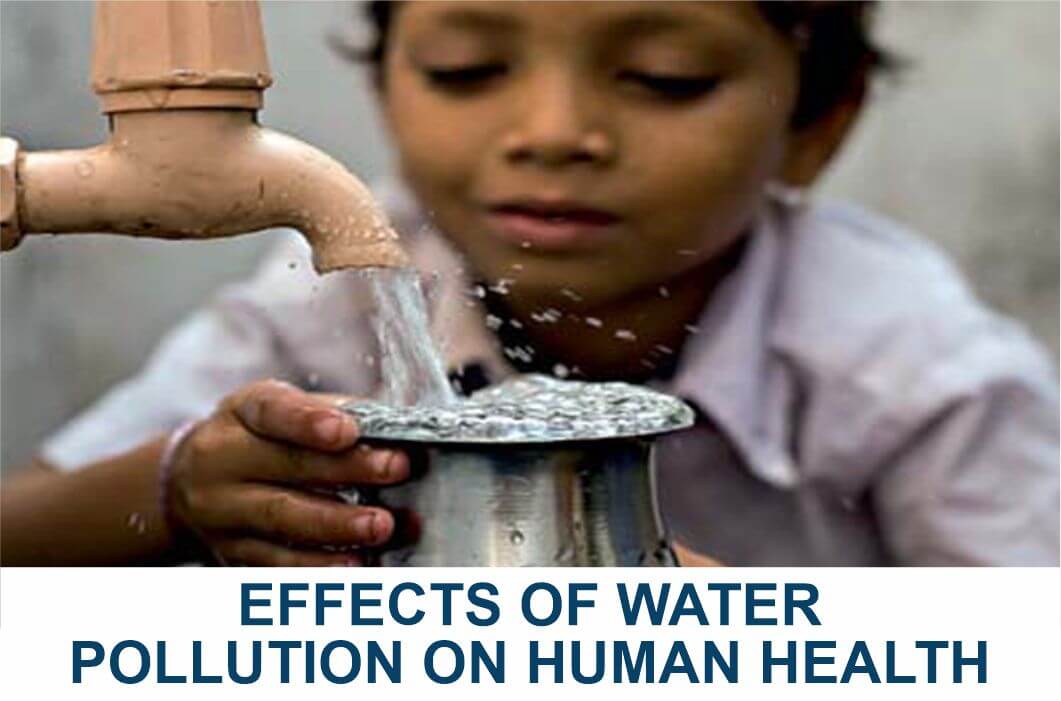The earth, the air, the land, and the water are not an inheritance from our forefathers but on loan from our children.
So we have to hand it over to them at least as it was handed over to us.
– Mahatma Gandhi
Agricultural and industrial water pollution, sewage water pollution, garbage and plastics, radioactive waste in water, acid rain caused by burning fossil fuels, and oil spills are the harmful sources and causes of water pollution. These are the human activities through which harmful chemical substances are allowed to make their way into the water. Human interaction with dirty water, whether through drinking, skin contact, or eating farmed food that was grown using polluted water, poses a serious health risk. Pollutants in water have the potential to cause disease or poisoning.
The topic of water pollution has attracted an increasing number of media attention over the last couple of decades. That is because our oceans, seas, rivers, lakes, and other waterways are becoming increasingly contaminated, even as the awareness of the effects of water pollution on health grows.
Over one-third of the world's population does not have access to clean drinking water and sanitation facilities, according to the World Health Organization. This means that the water they drink could be contaminated with sewage, bacteria, and other dangerous materials, putting them at risk of contracting a variety of waterborne diseases. Some of these waterborne diseases are Typhoid, Diarrhea, Hepatitis A, Polio, Cholera, Jaundice, Malaria, Paratyphoid Fever, Dysentery, and Amoebiasis.
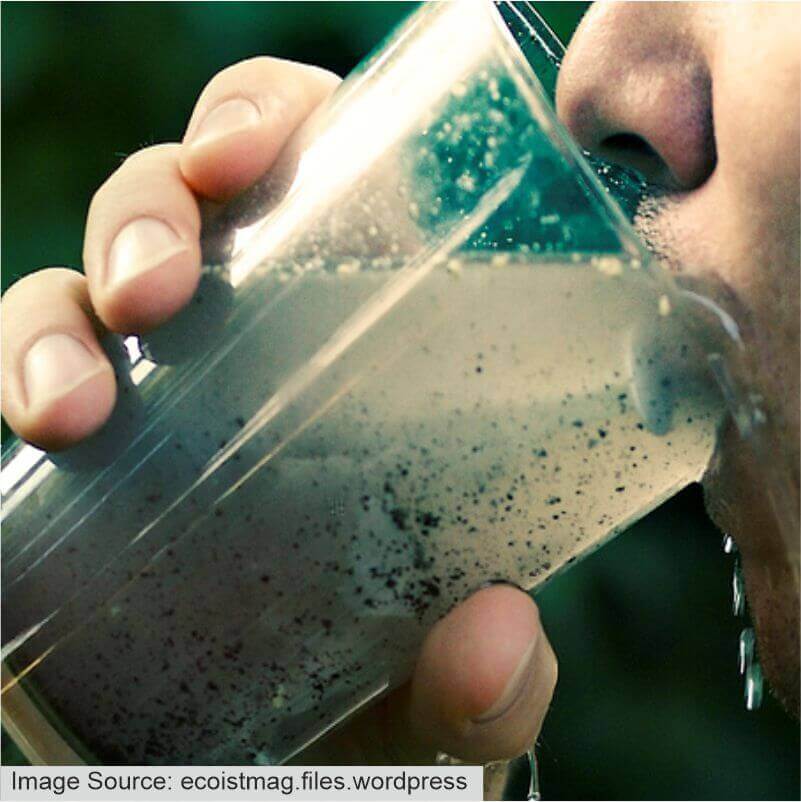
Have you tried drinking untreated water? Your body will react immediately. Waterborne diseases result in lakhs of deaths every year, and the majority of these are children.
Water Pollution and Human Health:
Around 70% of India's surface water is unsafe for human consumption. Every day, about 40 million liters of wastewater are discharged into rivers and other water bodies, with just a small percentage being appropriately cleaned. Consuming polluted water can have dire health consequences, and some of them are listed down below:
-
Consuming chemically contaminated water
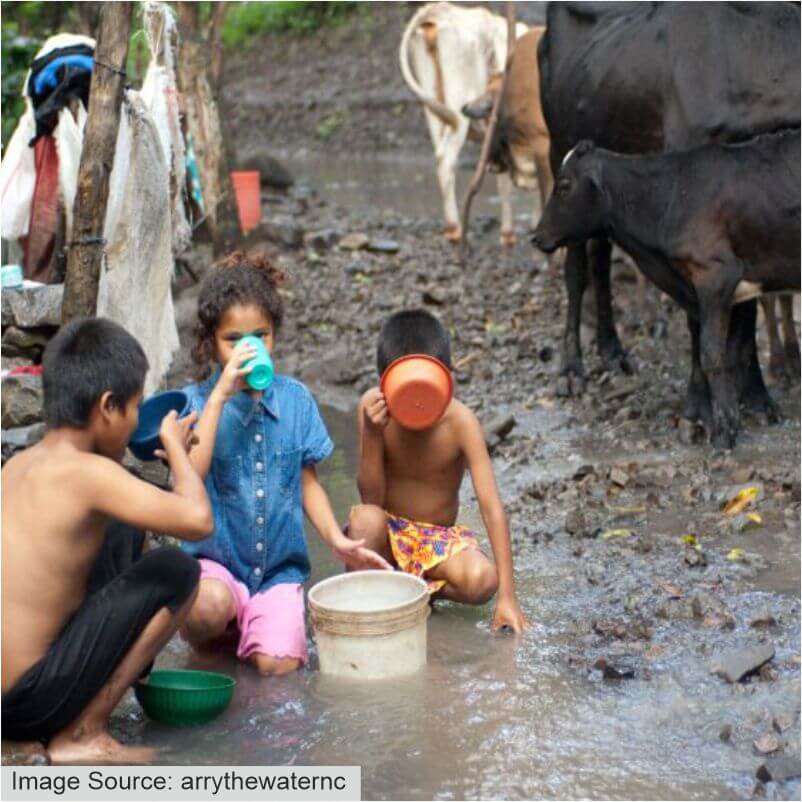
Chemicals like pesticides, nitrates, lead, arsenic, fluorides, and petrochemicals to name a few have negative effects on health. These chemicals can enter our water supply through various pathways including industrial operations, agricultural runoffs, and old infrastructure problems. When we are exposed to high levels of heavy metals, phosphate, ammonia, and other toxic substances, it can have major health consequences. Consuming chemicals can harm the immune, reproductive, renal, and cardiovascular systems, as well as contribute to cancer and reduce brain function in the most extreme cases.
-
Consuming water polluted with sewage and wastewater
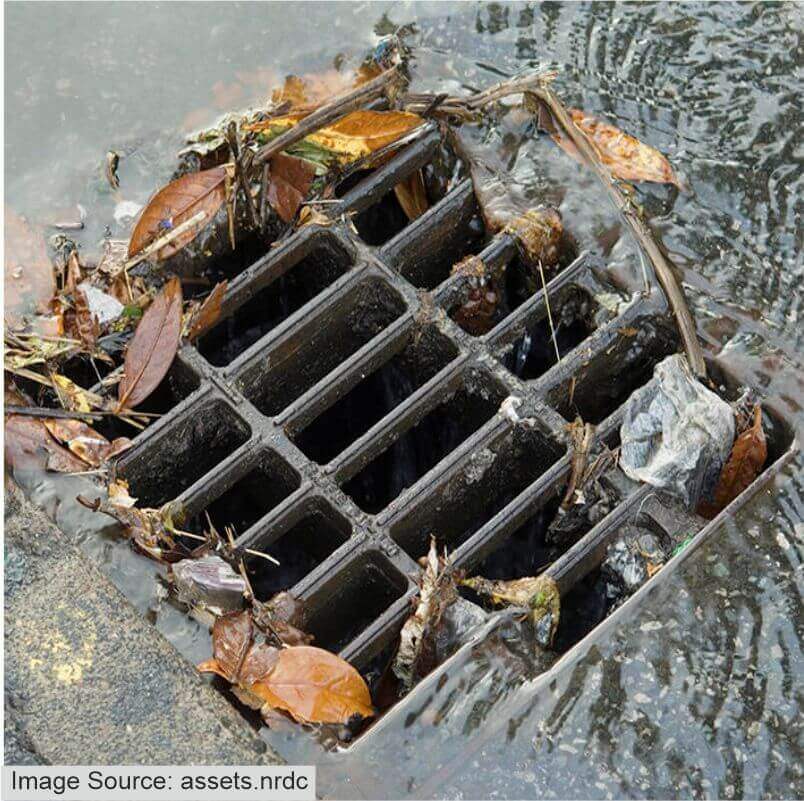
Water becomes wastewater once it has been used. Domestic wastewater, such as that from toilets, sinks, and showers, as well as commercial, agricultural, and industrial wastewater, are all examples of wastewater. Rainwater that washes oil, grease, road salt, debris, or chemicals off the ground into rivers is also referred to as wastewater. According to the United Nations, 80% of wastewater is returned to the ecosystem without being treated or reused.
According to the World Health Organization (WHO), around 2 billion people utilize a drinking water source contaminated with fecal pollutants. Every year it is estimated that 829000 people die due to diarrhea as a result of inadequate drinking water and sanitation. However, diarrhea is preventable, and the lives of 297000 children under the age of 5 can be saved if the risk factors are addressed. -
Consuming water containing microplastics
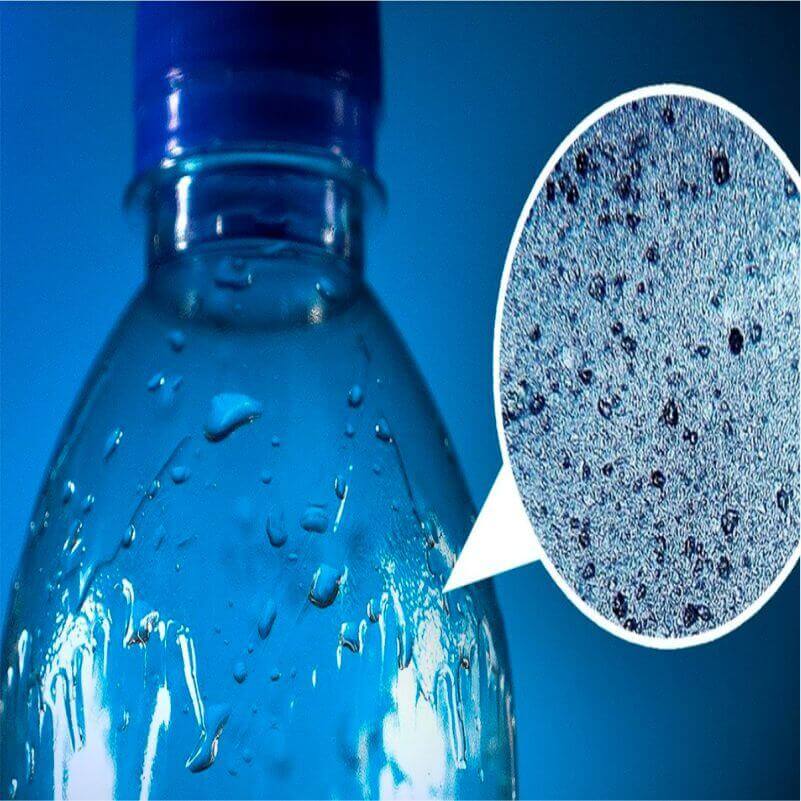
Microplastic pollution should be treated with the same level of concern as the two types of water pollution mentioned above. Microplastics are plastic particles that are less than 5mm in size. They are divided into two types: Primary and Secondary. Primary microplastics are those that are smaller than 5mm in size by design and Secondary microplastics are those that break down from larger pieces of plastic waste.
Microplastics can be ingested through drinking water or eating infected seafood. They've also been discovered in salt, beer, and other food items. Consuming microplastics may cause oxidative stress, inflammatory responses, and metabolic abnormalities in humans. However, more research is required to verify these effects.
Child Help Foundation’s Contribution to Good Health
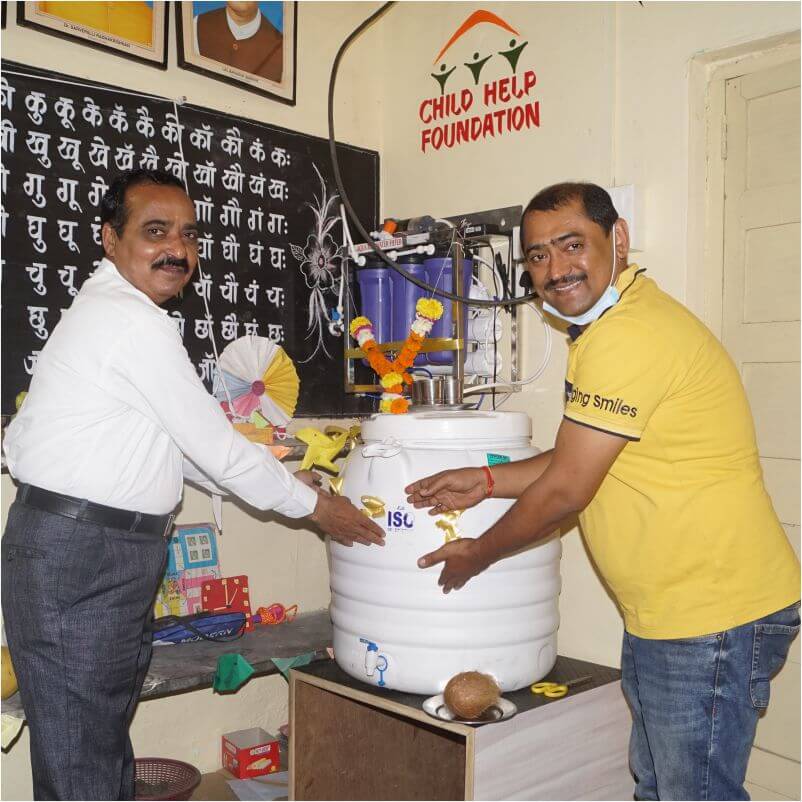
Child Help Foundation provided Water Purifiers in lieu of good health and well-being at various schools in the villages across India. With children particularly at risk from water-related diseases, access to improved sources of water will result in better health, and therefore better school attendance, with positive longer-term consequences for their lives.
How can we make a difference?
Water pollution is a severe global environmental issue. Many contaminants can cause water pollution. Consuming, entering, or washing in polluted water can have a negative effect on human health. Water contamination can be reduced in many ways. There should be a proper disposal system. Educational programs should be conducted to create awareness about the negative effects and how to stop water pollution. If a person's health is affected by water pollution, they should consult their doctor immediately.
